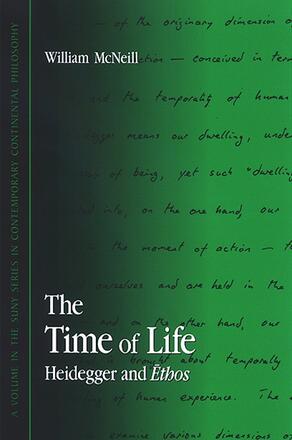
The Time of Life
Heidegger and Ethos
Alternative formats available from:
Explores the notion of ēthos in Heidegger’s thought.
Description
The Time of Life explores Heidegger's rethinking of ethics and of the ethical in terms of an understanding of the original Greek notion of ēthos. Engaging the ethical in Heidegger's thought in relation to Aristotle, Michel Foucault, and Friedrich Hölderlin, William McNeill examines the way in which Heidegger's thought shifts our understanding of ethics away from a set of theoretically constructed norms, principles, or rules governing practice toward an understanding of the ethical as our concrete way of Being in the world.
Central to this study is the consideration of the ethical in relation to time: the time of biological life, the time of human life as biographical and historical, the temporality of human action, and the historicality of human thought. In addition, this book critically examines the predicament of ethical responsibility in a scientific-technological era, considering how the world of modern science and technology call upon us to rethink the nature of ethical responsibilities.
William McNeill is Professor of Philosophy at DePaul University and is the author of The Glance of the Eye: Heidegger, Aristotle, and the Ends of Theory, also published by SUNY Press.
Reviews
"McNeill's scholarship on Heidegger is excellent, and he writes clearly and with great lucidity and insight on thoughts and questions that are quite difficult to articulate. " — Daniela Vallega-Neu, author of The Bodily Dimension in Thinking
"McNeill's knack for explicating the kernel of Heidegger's often-thorny argumentation is on full display throughout the book, and his ability to render the difficulty posed by Heidegger's dense thinking into the most cogent expression is most remarkable. " — Jeffrey L. Powell, Marshall University